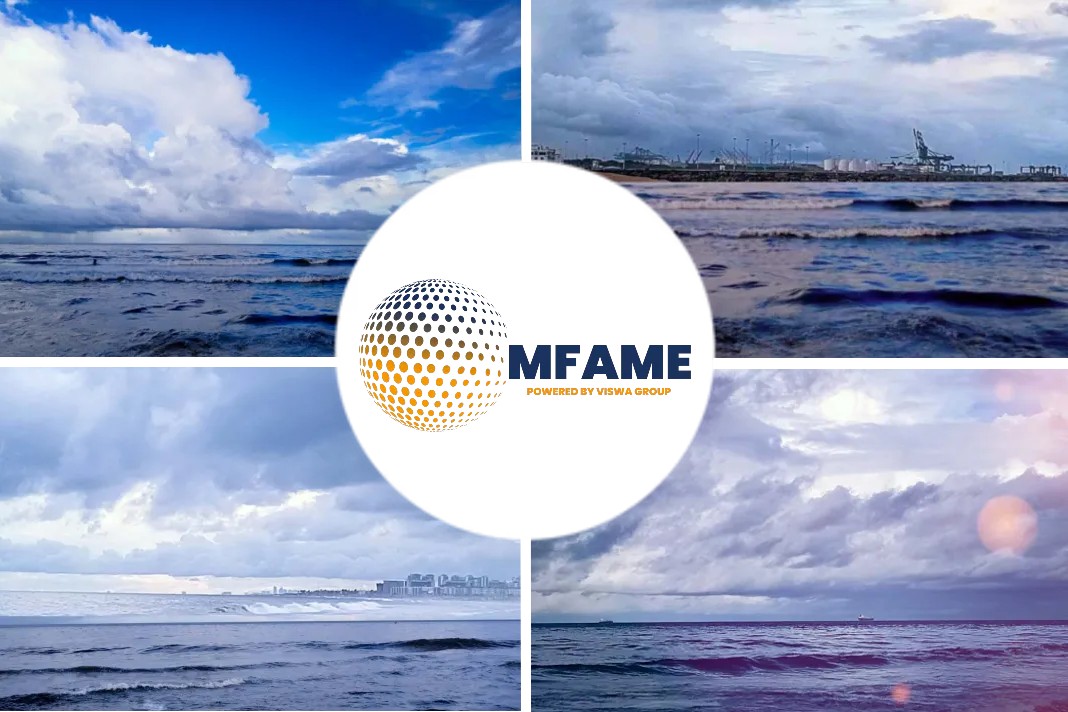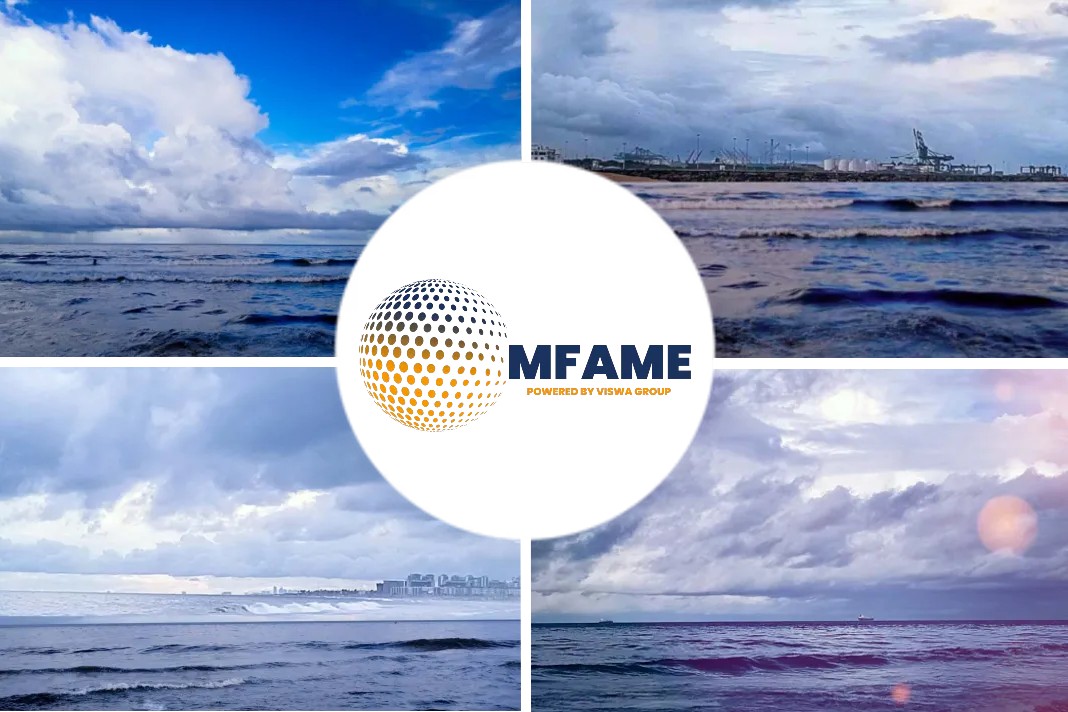TOKYO-Mitsui O.S.K. Lines, Ltd. (MOL; President & CEO: Takeshi Hashimoto; Headquarters: Minato-ku, Tokyo) today announced the conclusion of a syndicated “Transition Loan” for two LNG-fueled ferries the Sunflower Kurenai and the Sunflower Murasaki, says a press release published o their website.
Transition Loan
The Development Bank of Japan Inc. (DBJ; President & CEO: Hajime Watanabe; Head Office: Chiyoda-ku, Tokyo) and Sumitomo Mitsui Trust Bank, Limited (SMTB; President: Kazuya Oyama; Head Office: Chiyoda-ku, Tokyo) served as the arrangers and Sumitomo Mitsui Banking Corporation (SMBC) as the co-arranger.
On top of the three banks, this Transition Loan was jointly provided by 10 local financial institutions located mainly in Western Japan, near the routes on which the two ferries will be launched, and close to the shipyards where they will be built. It was selected as the first transition loan in Japan for the Ministry of Economy, Trade and Industry (METI)’s climate transition model projects.
Third-party evaluation
Eligibility for the loan received third-party evaluation by the Japan Credit Rating Agency, as the loan conforms to the Climate Transition Finance handbook published by the International Capital market Association (ICMA) and the Green Loan Principles (GLP) developed by experienced working groups such as the Green Bond Principles (GBP) of the International Capital Market Association.
About the vessels
The two vessels are Japan’s first LNG-fueled ferries, which will be operated on the Osaka-Beppu route by MOL Group company Ferry Sunflower Limited (President: Mitsujiro Akasaka: Head Office: Oita-shi, Oita Prefecture), and slated for launching in succession from the end of 2022 to early 2023.
LNG, which will be used as fuel on the ferries, is expected to reduce the vessels’ emissions of carbon dioxide (CO2) by more than 20%, sulfur oxides (SOx) by 100%, and nitrogen oxides (NOx) by about 85% compared to conventional fuel oil vessels.
Five stars rating
The ferries have also earned the top rating of five stars from the Japanese Ministry of Land, Infrastructure, Transport and Tourism (MLIT)’s energy conservation rating system for coastal ships. These vessels are also expected to contribute to a modal shift in Japan in addition to playing a key role in a critical maritime infrastructure that supports the movement of people and commodities in Western Japan.
MOL Group Environmental Vision 2.1
The MOL Group established the MOL Group Environmental Vision 2.1 in June 2021 with the aim of achieving net zero GHG emissions by 2050 (Note 5). It plans to launch about 90 LNG-fueled vessels by 2030, as an “introduction of clean alternative fuels” (Fig. 1) to realize this vision. It continually strives to contribute the development of a through concerted group-wide efforts.
Did you subscribe to our daily newsletter?
It’s Free! Click here to Subscribe!
Source: MOL


















